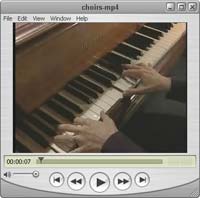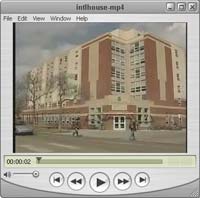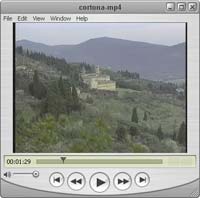|
by Geoff McMaster
In this special, video supplement to Folio's international edition, see how students, faculty and alumni are making a difference around the world. You may need to install Quicktime to view the files.
Healing children in Mexico
Elizabeth Jones, a University of Alberta nutrition graduate
(1955), began dispensing advice from the back of a station wagon
in Tijuana some 30 years ago. Since then she has rallied enough
support to build the Hospital Infantil de las Californias, where the
majority of doctors volunteer and patients are treated regardless
of their ability to pay. She also established an outreach program
to service barrios that Mother Theresa once called among the most impoverished anywhere.
|

click image to begin video
|
Fighting AIDS/HIV in Uganda
Dr. Walter Kipp has spent much of his career helping Uganda
deal with devastating scourge of HIV-AIDS. Partly because of his
influence on health policy, the country is one of the few in Africa
where infection is actually on the decline. Key to his success is
a strong relationship with people in a rural district of Western
Uganda, and a profound understanding of the physical and cultural barriers that stand
in the way of an effective strategy for fighting the disease. Kipp is now passing the
torch to his graduate students, who design projects to meet the most urgent needs of
the Ugandan people.
|

click image to begin video
|
Playing around the world
Every year, physical education professor Dr. Jane Vallentyne
and team of volunteer students pack their toys and sports gear
and traved overseas to Thailand where they help disadvantaged
and disabled children learn to play � children who, for cultural
reasons, would otherwise have no outlet for this form of self
expression. Over five years the program has blossomed beyond anyone�s expectations,
transforming the lives of both the children and the students who participate.
|

click image to begin video
|
Restoring a river of legend
The great Yangtze River in China has since ancient times
been a source of abundant life, food and mythology. But in
recent decades the river has become horribly polluted. Its banks,
once covered in vast forests, have been severely eroded by
over-farming. Four years ago Dr. Larry Wang and a childhood
friend, Sam Chao, an electrical engineer now living in the U.S., decided to do what
they could to stop the deterioration of this national treasure. They raised funds and
gathered enough local expertise in forestry management, soil conservation and rural
economic development to launch a reforestation program. What they�ve been able to
do so far, they admit, is just a start. But the results are remarkable.
|

click image to begin video
|
Inciting a choral revolution
Leadership and innovation in the arts are as critical to our
social well-being as development projects in health care, agriculture
or environmental science. At Campus Saint-Jean music professor
Dr. Laurier Fagnan has found a way to improve the sound
of choirs by applying techniques of the Italian bel canto singing
method, long thought to be suitable only for the solo voice. Already attracting international
interest, Fagnan defended his doctoral thesis just last fall and is now poised
to shake up the world of choral music.
|

click image to begin video
|
Living global citizenship
At the University of Alberta�s recently opened International
House students from around the world, including Canada, live
and learn together, providing a model for cross-cultural understanding.
The new residence is part of a distinguished global
network called International House Worldwide and is the first in
the network to open in Canada. |

click image to begin video
|
Breathing history
The great Roman poet, Virgil, claimed that Cortona was
founded by Dordona, the son of Zeus and Electra. Modern historians
speculate that it was once a fortified Umbrian city that passed
into the hands of the Etruscans between the eighth and seventh
centuries. Whatever your persuasion, this Italian hill-top town
is steeped in history as much as in the enticing aromas of Tuscan cuisine. Each year,
some 40 U of A students spend a term in Cortona taking courses ranging from Italian
to ancient Roman archeology and Renaissance art. They say the experience leaves an
impression that is sure to last a lifetime. |

click image to begin video
|
You are visitor number

|